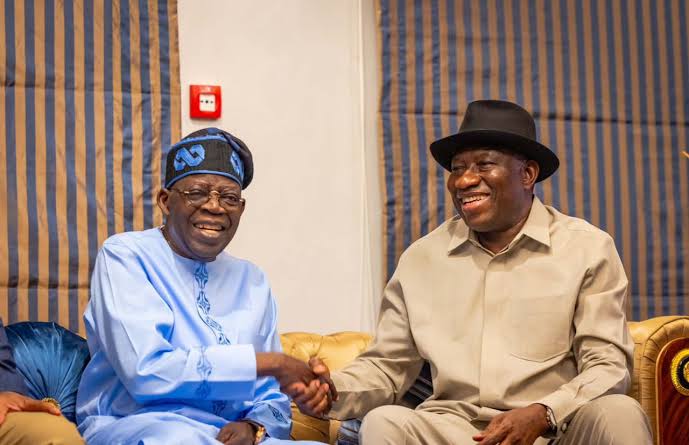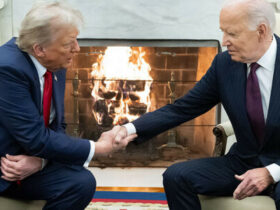The recent announcement of the new minimum wage of N70,000 by Bola Tinubu and the organized labour which comprise the TUC and Nigeria Labour Congress (NLC) has sparked widespread debate across Nigeria.
While the nominal increase appears substantial, its real value, when adjusted for inflation and currency depreciation, has left many feeling disappointed.
Currently, N70,000 translates to approximately $42, a sharp decline from the purchasing power of previous minimum wage figures when adjusted for inflation and currency depreciation.
In 2011, under President Goodluck Jonathan’s administration, the minimum wage was set at N18,000, which was roughly equivalent to $114 at the time.

This comparison highlights the significant devaluation of the Naira over the past decade, emphasizing the severe impact of inflation and economic instability on the standard of living for Nigerian workers.
The recent adjustment, although a nominal increase, fails to match the economic reality faced by citizens today.
Many Nigerians express frustration and disappointment with the new wage, arguing that it does not adequately address the rising cost of living. Prices of essential goods and services have soared, and the new minimum wage barely covers basic needs. Workers are struggling to make ends meet, with many calling for more comprehensive economic reforms to address the root causes of inflation and currency devaluation.
READ MORE: BREAKING: Fear Of NationWide Protest, Tinubu Increases Minimum Wage to 70 Thousand Naira
Economic analysts also point out that while the wage increase is a step in the right direction, it is insufficient given the current economic climate.
They emphasize the need for policies that stabilize the Naira, control inflation, and boost economic growth. Without these measures, the value of any minimum wage increase will continue to erode, leaving workers in a perpetual state of financial insecurity.
The government, on its part, has defended the new minimum wage as a necessary adjustment to support workers amidst challenging economic conditions. Officials argue that the increase demonstrates a commitment to improving the welfare of Nigerian workers. However, they acknowledge that more needs to be done to address the broader economic issues facing the country.
Nigerians React;
@MissPearls said I see those celebrating it as naive. They don’t know any better!
@iam_skamal said If the govt can find a way to reduce the price of PMS to at least 300/litre it will solve a lot of problem.
@Ezechigozie14 said If they can at least subsidize food, it will solve a whole lot of problem
@itz_courageous said If there is a reduction in the price of PMS, price of goods and services will drop drastically
@nuellaluchi said The new minimum wage is only beneficial to level 12 and above reasons why they are jubilating. But below level 5,I pity them because most states will never pay this amount.
@jesugbemi4 said; Nigerian senators are pocketing 1.2 million naira as hardship allowance but we’re jubilating over new minimum wage of 70,000 naira.
@maxvayshia said A distraction like a useless 70,000 naira minimum wage is what you get when you release date for a protest and indirectly tell the FG to keep it a date with you.
@FionaYate said 70,000 Naira, for minimum wage is horrible, heartless and wickedness.
@johnwaal007 said I earned 100k during GEJ admin that was 750$ now that’s 75$
Parallelfact can report that as the debate continues, it is clear that the new minimum wage, though intended to provide relief, falls short of expectations.
The contrast between the current wage’s value and that during President Jonathan’s era underscores the urgent need for sustainable economic policies.
Only through comprehensive reforms can the purchasing power of Nigerian workers be truly restored, ensuring a more stable and prosperous future for all.
Follow the Parallel Facts channel on WhatsApp: https://whatsapp.com/channel/0029VaCQSAoHgZWiDjR3Kn2E








Leave a Reply